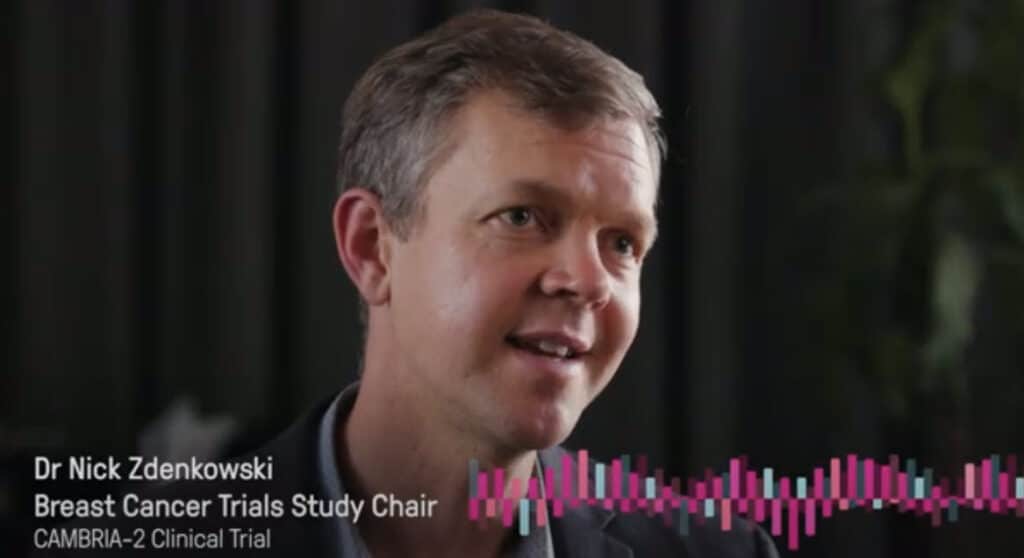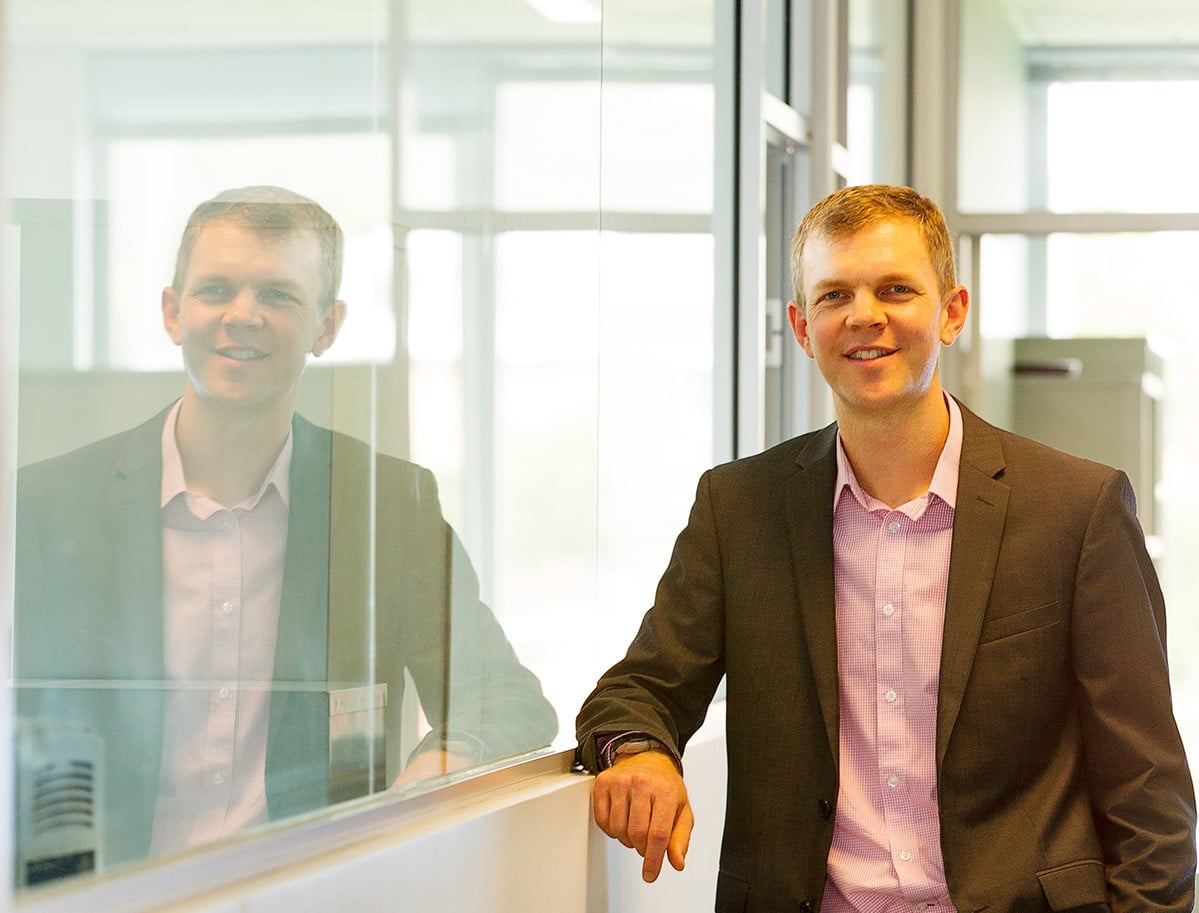- Research
- 2022-2026 Research Strategy
- Open Clinical Trials
- Closed Clinical Trials
- What is a Clinical Trial?
- Why Participate in a Clinical Trial
- Remote Telehealth Pre-Screening Process
- Research Achievements
- Publications
- Research Development and Funding
- Participating Institutions
- International Collaboration
- BCT Trials & Projects Summary
- Translational Research
- Clinical Fellowship Program
- International Fellowship Support
- Annual Scientific Meeting
- Travel Grants and Awards
- About
- Our Impact
- Fundraise
- Donate
- Researcher Login
- Cart
The CAMBRIA-2 Clinical Trial
CAMBRIA-2 is for men or women who have ER-positive, HER2-negative early breast cancer that has an intermediate or high risk of coming back (recurrence).
Although many patients with ER-positive, HER2-negative early breast cancer may be cured of their disease with surgery (+/- radiotherapy) and endocrine (hormone) treatment (+/- chemotherapy), a significant number of patients will experience breast cancer coming back (recurrence). Recurrence may be due to resistance to endocrine therapy or dormant tumour cells may grow. Therefore, we need endocrine treatments that are more effective, safe, and that patients continue to take for as long as required, to further improve the cure rate.
The treatment being trialled is a type of endocrine treatment called a ‘selective oestrogen receptor degrader’ (SERD). The SERD works by breaking down the oestrogen receptors in cells, and also blocks the oestrogen receptors from being triggered by oestrogen. This prevents ER-positive cancer cells receiving messages to grow and multiply. The SERD may help to reduce the chance of cancer coming back.
The purpose of CAMBRIA-2 is to find out if giving the SERD is better at reducing the chance of cancer from coming back compared with the usual endocrine treatments such as letrozole, anastrozole, exemestane or tamoxifen. The research will also find out more about the side effects, safety and effectiveness of the SERD.
Wendy Rolls is a Participant on the CAMBRIA-2 Clinical Trial.
CAMBRIA-2 is an open-label, randomised study. There are 2 study groups:
- Arm A (Usual Treatment): Participants will receive standard endocrine (hormone) treatment.
- Arm B (Research Treatment): Participants will take 2 SERD tablets once per day.
Participants may also take abemaciclib (a different type of treatment called a CDK4/6 inhibitor that is now commonly given with endocrine treatment to patients with a high risk of cancer recurrence).
Participants will take study treatment for up to 7 years, and will continue follow up once or twice a year until 10 years after the last person joins the study. Study visits will be at screening, Month 1, Month 4, Month 7, then every 6 months to 7 years. Follow up visits will be every 12 months. The total duration of the study will be approximately 14 years.
CAMBRIA-2 will recruit 5500 patients at approximately 700 sites across 40 countries over 3 and a half years. BCT will recruit approximately 225 patients at 25 Australian and 3 New Zealand sites.
Dr Nicholas Zdenkowski is the Study Chair for the CAMBRIA-2 clinical trial.





